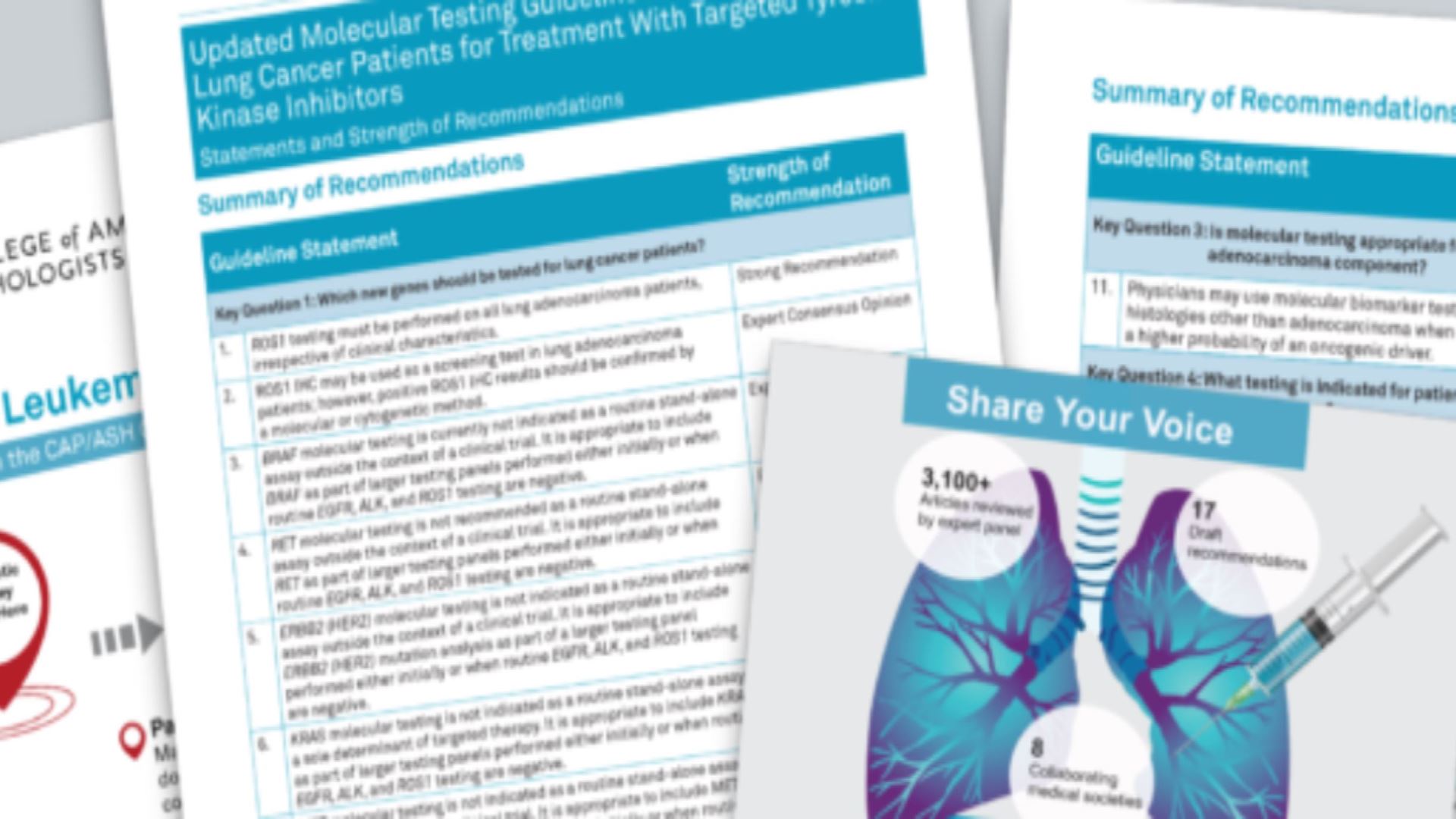Northfield, IL—Rapid progress in understanding the impact that the human papillomavirus (HPV) has on head and neck cancers is driving development of the College of American Pathologists (CAP) newest evidence-based practice guideline, "High Risk Human Papillomavirus (HPV) Testing for Head and Neck Cancers," which is available today in draft form for public comment through August 8, 2016 on cap.org.
General and specialty surgeons, oncologists, pathologists, cytotechnologists, otolaryngologists, dentists, dental professionals, nurses, allied health professionals, hospital or laboratory administrators, patient advocacy group representatives, and patients are encouraged to provide feedback on these draft recommendations.
HPV-related head and neck cancer is on the rise in the U.S., with the greatest increase among middle-aged white men. At least 25%, and as much as 60%, of head and neck carcinomas are known to be associated with high-risk HPV (HR-HPV). More specifically, HPV causes about 70% of oropharyngeal carcinomas (those involving the middle of the throat, the base of the tongue, and the tonsils), according to the National Cancer Institute.
"Several HPV sub-types are known to increase cancer risk, so-called "high risk" types, and some HPV-positive carcinomas are also associated with a better prognosis, particularly those in the oropharynx," said guideline co-chair William C. Faquin, MD, PhD, FCAP, a pathologist at Massachusetts General Hospital, Boston. "These patients may be candidates for less aggressive or tailored therapies, so accurate HPV assessment in head and neck cancers is becoming critical. It is also important to know when testing is not indicated."
An expert interdisciplinary panel including surgeons, radiation oncologists, medical oncologists and pathologists developed the draft guideline, which aims to provide evidence-based guidance so that accurate assessments of a patient's HPV status, directly or by surrogate markers, are consistently incorporated into pathology reports. Guideline details include recommended methods and application of HR-HPV testing in both histologic and cytologic specimens of head and neck carcinomas in the clinical setting, including the performance, interpretation and reporting of results from those tests.
"HPV status in oropharyngeal carcinomas is becoming increasingly important for proper patient counseling and for defining treatment, although personalized treatment regimens for HPV-positive patients are still being defined in many ongoing prospective clinical trials," added guideline co-chair, James S. Lewis, Jr., MD, FCAP, a pathologist at Vanderbilt University Medical Center in Nashville, Tenn. "Management of these patients is multi-disciplinary—involving radiation, chemotherapy, and frequently surgery, so open comment period feedback garnered from professionals across the medical spectrum will be especially valuable."
Following the open comment period, the guideline authors will consider all feedback to finalize the recommendations. The final recommendations will appear in the guideline manuscript and will be available at no cost.
To read and comment on the draft recommendations, visit cap.org between July 18, 2016 and August 8, 2016.
The CAP Center develops evidence-based guidelines and consensus statements related to the practice of pathology and laboratory medicine. Through this work, the CAP and its members continually improve the quality of diagnostic medicine and patient outcomes.
About the College of American Pathologists
As the leading organization with more than 18,000 board-certified pathologists, the CAP serves patients, pathologists, and the public by fostering and advocating excellence in the practice of pathology and laboratory medicine worldwide. The CAP's Laboratory Improvement Programs, initiated 65 years ago, currently has customers in more than 100 countries, accrediting 7,800 laboratories and providing proficiency testing to 20,000 laboratories worldwide. Find more information about the CAP at cap.org. Follow CAP on Twitter at @pathologists.

